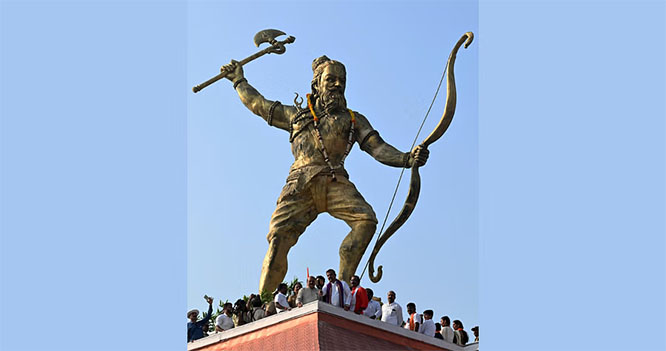Amid the ongoing rift between the Chief Justice of India Dipak Misra and four senior-most judges over the assignment of important cases, the Supreme Court on Monday announced the composition of a five-judge Constitution Bench headed by the CJI.
This bench will hear eight crucial cases on Wednesday, including Aadhaar, the validity of Section 377 of Indian Penal Code which criminalises homosexuality, the validity of adultery law under the IPC, entry of women into Kerala's Sabarimala temple and other cases.
None of the four judges who spoke out against the CJI — justices J Chelameswar, Ranjan Gogoi, MB Lokur and Kurian Joseph — feature on the Constitution Bench.
According to news agency, the five-judge bench, comprising CJI Misra, Justice AK Sikri, Justice AM Khanwilkar, Justice DY Chandrachud and Justice Ashok Bhushan, will commence the hearing on a range of crucial matters from 17 January.
Aadhaar-privacy row
The Aadhaar case will take a look at the legality of the Aadhaar(Targeted Delivery of Financial and other Subsidies, Benefits and Services) Act which was enacted in 2016.
The bench would sit at 2 pm on Wednesday to take up the interlocutory applications seeking interim relief against the Centre's decision on linking of Aadhaar with various schemes.
The Centre had on 7 December told the apex court that the deadline for mandatory linking of Aadhaar to avail various services and welfare schemes would be extended until 31 March next year.
On 27 November, the apex court had said it may consider setting up a Constitution Bench to hear pleas challenging the Centre's move to make Aadhaar card mandatory for availing various services and benefits of welfare schemes.
It had on 30 October said a Constitution Bench would commence hearing on the clutch of petitions against the Aadhaar scheme from the last week of November.
Back in August, a nine-judge bench of the apex court had held that Right to Privacy was a Fundamental Right under the Constitution. Several petitioners challenging the validity of Aadhaar had claimed it violated privacy rights.
Validity of Section 377
Alongside the crucial hearing on the Aadhaar-privacy issue, the bench will also hear a plea seeking decriminalisation of gay sex between consenting adults.
A bench comprising CJI Misra and justices Khanwilkar and Chandrachud had on 8 January said that the issue arising out of Section 377 of the Indian Penal Code (IPC) required to be debated upon by a larger bench.
Section 377 of the IPC refers to "unnatural offences" and says whoever voluntarily has intercourse "against the order of nature" with any man, woman or animal, shall be punished with imprisonment for life, or with imprisonment of either description for a term which may extend to 10 years, and shall also be liable to pay a fine.
The bench was hearing a fresh plea filed by Navtej Singh Johar, seeking that Section 377 be declared as unconstitutional to the extent that it provides for the prosecution of adults for indulging in consensual gay sex.
The same combination of judges had last year heard various Constitution Bench matters from 10 October, including the power tussle between the Centre and the Delhi government over administrative jurisdiction and a matter relating to passive euthanasia.
In their unprecedented press conference on Friday, the four senior judges of the apex court had mounted a virtual revolt against the CJI, listing a litany of problems, including assignment of cases. They had also raised questions over the listing of PILs concerning Loya's death.
An office bearer of the Supreme Court Bar Association (SCBA) said a copy of their resolution was submitted by its president Vikas Singh to the CJI on Sunday, but have not heard anything from the top court as yet.
Meanwhile, court sources said it was not confirmed whether the CJI met the four judges on Monday, who had hurled accusations against him at their controversial press conference on 12 January.
Singh had expressed hope that all judges of the apex court would consider the SCBA resolution seeking a full-court discussion to defuse the crisis plaguing the higher judiciary.
The SCBA, at an emergency meeting on Sunday, had passed the resolution expressing grave concern over the differences of four senior-most judges with the CJI.
It had said that all public interest litigation (PIL) matters, including the pending PILs, should be either taken up by the CJI or be assigned for adjudication to four senior judges who are part of the apex court collegium.






Comments
Add new comment